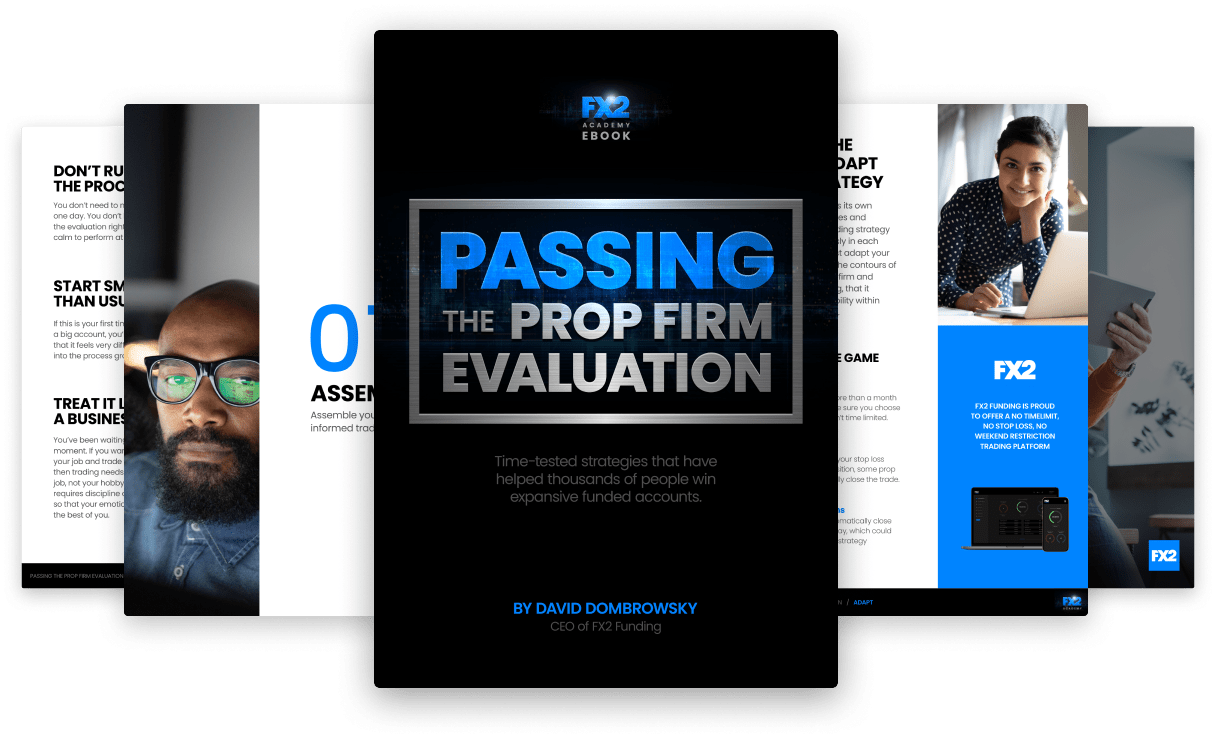Avoiding the Most Common Pitfalls that Trip Up Traders
Trading in financial markets, whether it’s stocks, forex, or cryptocurrencies, is not only about crunching numbers and analyzing charts but also about managing your mindset. The psychological aspect of trading is a critical factor that can significantly influence your success or failure. Understanding how emotions and cognitive biases impact trading decisions is essential for developing strategies that minimize these mental pitfalls.
Understanding the Intersection of Trading and Psychology
The relationship between trading and psychology is complex and deeply intertwined. Traders must constantly make decisions under conditions of uncertainty, which can evoke a range of emotional responses such as fear, greed, and overconfidence. These emotions can lead to cognitive biases, which impact trading performance negatively.
Emotional Responses
Fear can cause traders to exit positions prematurely, while greed can make them hold onto losing positions for too long. Overconfidence might lead to excessive risk-taking.
Cognitive Biases
These are systematic errors in thinking that affect decisions and judgments. In trading, cognitive biases can skew a trader’s perception of market movements, leading to suboptimal decisions.
Common Psychological Traps in Trading
Even experienced traders are not immune to psychological traps. Here are some of the most common ones that can derail trading performance:
Anchoring Bias
Anchoring bias occurs when traders rely too heavily on the first piece of information they receive (the "anchor") when making decisions. For example, if a trader buys a stock at $50, they might anchor to this price and be reluctant to sell it for less, even if the market conditions suggest otherwise. Learn more about anchoring bias in trading.
Overconfidence Bias
Overconfidence bias leads traders to overestimate their knowledge, abilities, and the accuracy of their predictions. This can result in taking on excessive risks, trading more frequently than necessary, and ignoring warning signs in the market.
Confirmation Trap
The confirmation trap involves seeking out information that confirms pre-existing beliefs while disregarding information that contradicts them. Traders may ignore critical market signals that go against their positions, leading to substantial losses.
Loss Aversion
Loss aversion refers to the tendency to prefer avoiding losses over acquiring equivalent gains. This can cause traders to hold onto losing positions for too long, hoping to recover their losses, rather than cutting them short and moving on.
Fear of the Unknown
Fear of the unknown can paralyze traders, causing them to avoid making decisions due to uncertainty. This fear can prevent them from taking advantage of profitable opportunities and reacting appropriately to market changes.
Sunk Cost Trap
The sunk cost trap occurs when traders continue to invest in a losing position because they have already invested significant resources into it. They focus on what they have already lost rather than making decisions based on current market conditions.
Blindness Trap
Blindness trap happens when traders fail to see the big picture and focus too narrowly on specific details or short-term movements. This myopic view can lead to missing out on broader market trends and opportunities.
Tangibility of Anticipation
This trap involves placing too much weight on recent gains or losses and expecting them to continue. Traders may become overly optimistic after a series of wins or overly pessimistic after a series of losses, leading to poor decision-making.
Herd Mentality
Herd mentality drives traders to follow the actions of the majority, often leading to irrational decisions. This can result in entering or exiting positions based on market hype rather than sound analysis.
Gambler's Fallacy
The gambler's fallacy is the mistaken belief that past events can influence future probabilities. Traders might think that after several losses, a win is due, leading to increased risk-taking without a rational basis.
Overcoming Psychological Traps
Navigating the psychological pitfalls of trading requires more than just awareness of the traps; it necessitates actionable strategies to overcome them. Traders must cultivate discipline, rationalize losses effectively, and manage emotional biases to enhance their trading performance.
Cultivating Discipline in Trading
Discipline in trading is paramount for consistent success. It involves adhering to a structured plan and resisting the urge to make impulsive decisions based on short-term market movements or emotional responses. Here are some steps to cultivate emotional discipline in trading:
Develop a Comprehensive Trading Plan
A well-structured trading plan serves as the foundation of disciplined trading. This plan should include:
- Trading Goals. Clearly define your short-term and long-term trading objectives.
- Risk Management Rules. Set strict guidelines on how much capital you are willing to risk on a single trade and the maximum allowable drawdown for your account.
- Entry and Exit Strategies. Establish specific criteria for entering and exiting trades. These should be based on your trading strategy and market analysis rather than on emotions or hunches.
Stick to Your Plan
Once you have a trading plan in place, the next challenge is sticking to it. This requires:
- Consistency. Consistently follow your trading rules without deviation, even when tempted to act on a “gut feeling.”
- Patience. Wait for the right trading setups that meet your criteria, rather than jumping into trades impulsively.
- Avoid Overtrading. Trading too frequently can lead to poor decision-making and increased risk. Stick to your plan and avoid the temptation to trade outside of your strategy.
Use Technology to Aid Discipline
Trading platforms offer various tools that can help you stay disciplined:
- Automated Trading Systems. Use automated systems to execute trades based on predefined criteria, reducing the risk of emotional decision-making.
- Alerts and Notifications. Set up alerts for key market conditions or price levels to ensure you are aware of significant events without constantly monitoring the market.
Rationalizing Losses
Accepting and rationalizing losses is a critical aspect of trading psychology. Losses are an inevitable part of trading, and how you handle them can significantly impact your overall performance.
Accept Losses as Part of Trading
Understanding that losses are a natural part of trading helps in coping with them better. Every trader, no matter how skilled, experiences losing trades. The key is to:
- Focus on the Big Picture. Evaluate your performance over a series of trades rather than obsessing over individual losses. A single trade should not define your trading career.
- Learn from Mistakes. Analyze losing trades to understand what went wrong. Did you deviate from your plan? Was there an unexpected market event? Use these insights to improve your future trades.
Set Realistic Expectations
Having realistic expectations helps in managing your reaction to losses:
- Avoid Perfectionism. No trader can achieve a 100% win rate. Accepting this fact allows you to be more objective about your performance.
- Emphasize Risk-Reward Ratio. Focus on the risk-reward ratio of your trades. Even if you have more losing trades than winning ones, a favorable risk-reward ratio can ensure overall profitability.
Managing Emotional Biases
Emotional biases can cloud judgment and lead to poor trading decisions. Identifying and managing these biases is crucial for maintaining a rational trading mindset.
Recognize Emotional Triggers
Understanding what triggers your emotional responses can help in managing them:
- Self-Awareness. Pay attention to your emotional state when trading. Are you feeling anxious, greedy, or fearful? Recognize these feelings and take a step back if necessary.
- Stress Management. High stress levels can exacerbate emotional biases. Practice stress management techniques such as mindfulness, meditation, or regular physical exercise to keep stress levels in check.
Implement Strategies to Mitigate Biases
Several strategies can help in reducing the impact of emotional biases:
- Use Objective Data. Base your trading decisions on objective data and analysis rather than on emotions. Rely on technical indicators, charts, and fundamental analysis to inform your trades.
- Set Predefined Rules. Predefined rules for entering and exiting trades can help eliminate emotional decision-making. For instance, always set a stop-loss order to limit potential losses and a take-profit order to secure gains.
- Take Breaks. If you find yourself overwhelmed by emotions, take a break from trading. Stepping away from the screen can provide a fresh perspective and help you avoid making impulsive decisions.
Implementing Psychological Strategies for Trading Success
Successfully overcoming psychological traps involves integrating specific psychological strategies into your trading routine. These strategies can enhance your mental resilience and improve your overall trading performance.
Regular Self-Assessment
Regularly assessing your psychological state and trading performance is crucial:
- Trading Journal. Maintain a trading journal to document your trades, thought processes, and emotions. Reviewing your journal can provide insights into your trading behavior and help identify patterns that need adjustment.
- Performance Metrics. Track key performance metrics such as win-loss ratio, average profit per trade, and maximum drawdown. Analyzing these metrics can help you understand your strengths and weaknesses.
Continuous Education
Staying informed and educated about trading and psychology is essential for long-term success:
- Learning Resources. Utilize books, online courses, and webinars to enhance your knowledge of trading strategies and psychological principles.
- Market Analysis. Regularly analyze market trends and economic indicators to stay updated on potential trading opportunities.
Seeking Support
Joining trading communities or seeking professional psychological support can provide valuable insights and guidance:
- Mentorship. Find a mentor or join a trading community where you can share experiences and learn from others.
- Professional Help. If psychological challenges significantly impact your trading, consider seeking help from a professional psychologist or therapist who specializes in trading psychology.
Implement Practical Psychological Strategies
Incorporating practical psychological strategies into your trading routine can significantly improve your trading success. Explore more psychology trading tips for confident trading.
- Visualization Techniques. Use visualization techniques to mentally prepare for various trading scenarios. Visualizing successful trades and calmly handling losses can boost your confidence and resilience.
- Mindfulness Practices. Incorporate mindfulness practices into your daily routine. Mindfulness helps in maintaining focus, reducing stress, and improving decision-making.
- Goal Setting. Set specific, measurable, achievable, relevant, and time-bound (SMART) goals for your trading. Clear goals provide direction and motivation, helping you stay disciplined and focused.
Conclusion
Overcoming psychological traps in trading requires a combination of discipline, rational thinking, and emotional management. By cultivating discipline through a comprehensive trading plan, rationalizing losses, managing emotional biases, and implementing practical psychological strategies, traders can enhance their decision-making process and improve their overall trading performance. The journey to successful trading is as much about mastering your mind as it is about mastering the markets.




